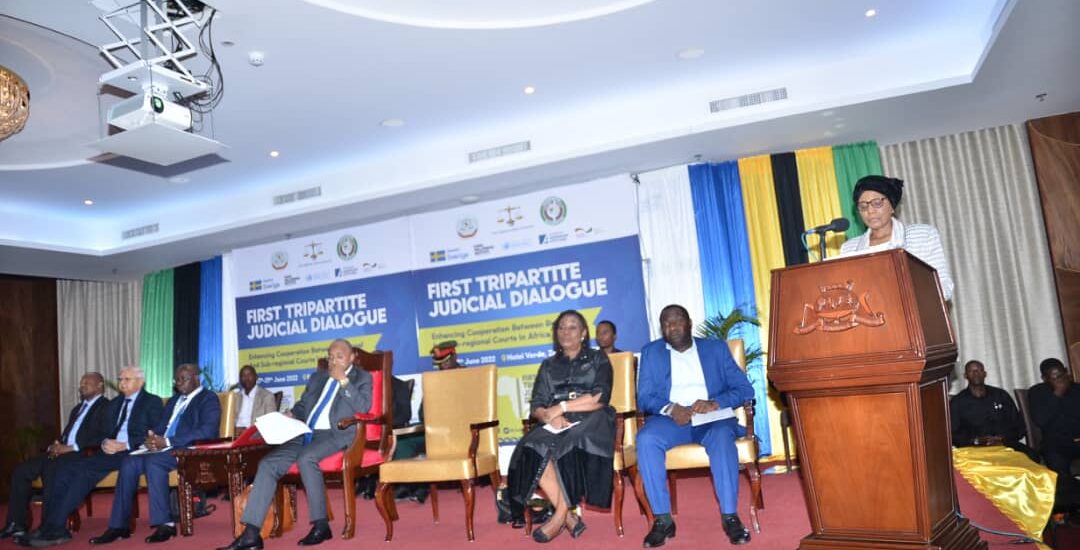The ongoing first ever tripartite judicial dialogue involving the African Court on Human and Peoples’ Rights (AfCHPR), the East African Court of Justice (EACJ) and the ECOWAS Community Court of Justice (ECOWAS CCJ), which is underway in Zanzibar, the United Republic of Tanzania is a wonderful innovation that could have even come much earlier.
Information from the Registry of the African Court states that the aim of the Dialogue is to discuss, among others, best practices on enhancing judicial cooperation and protection of human rights on the Continent and mechanism for better implementation of court decisions. In fact, in the words of the President of the African Court, Hon. Lady Justice Imani Daud Aboud, ‘[t]he Dialogue will provide opportunities for knowledge sharing and how best to face common challenges.’ The importance of a dialogue such as this, among other things, lies in the fact that both the ECOWAS Court and the East African Court share competence with the African Court in the enforcement of the African Charter on Human and Peoples Rights,
a catalogue of rights belonging to the African Union, the parent Institution of the Court.
It is hoped that the Judges of the Courts would place consistency and coherency of the interpretation of the Charter at the front burner and build consensus around the primacy of the African Court in the interpretation of the Charter. This would mean in practice that the other Courts would make efforts to familiarise themselves with the interpretative direction of the African Court and readily defer to it in the interpretation and application of the Charter. Needless to emphasise the obligation such a primus position places on the African Court: that of ensuring its reasoning is legal credible and thus commands strong persuasive force.
One area that this may become relevant is exhaustion of domestic remedies, concerning which the two other Courts defer from the African Court, though on the basis of their respective foundation Treaty. It would be nice to see all the Courts having a common practice on this and other issues. Such would, on the long run, prevent forum shopping, when the jurisdiction of the African Court expands (by way of more optional declarations) to cover more States over which the sub-regional courts presently exercise near exclusive human rights jurisdiction.
The dialogue also presents opportunity for the Courts to learn from one another by comparing notes on what has worked or has not worked well within the local circumstances and jurisdictions of the ECOWAS Court and the East African Court as well as the general jurisdiction they share with the African Court.
It is hoped that the Courts would extend this initiative to national court Judges with a view to creating the needed rapport between the national and international realms of the relevant Courts and the relevant States. It is also hoped such judicial dialogue would be sustained.









Everything is very open with a really clear description of the challenges. It was truly informative. Your website is very useful. Thanks for sharing!